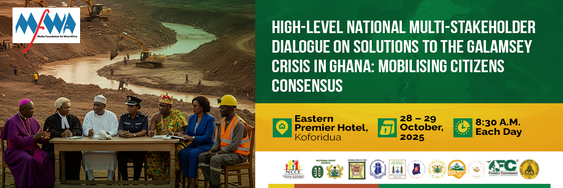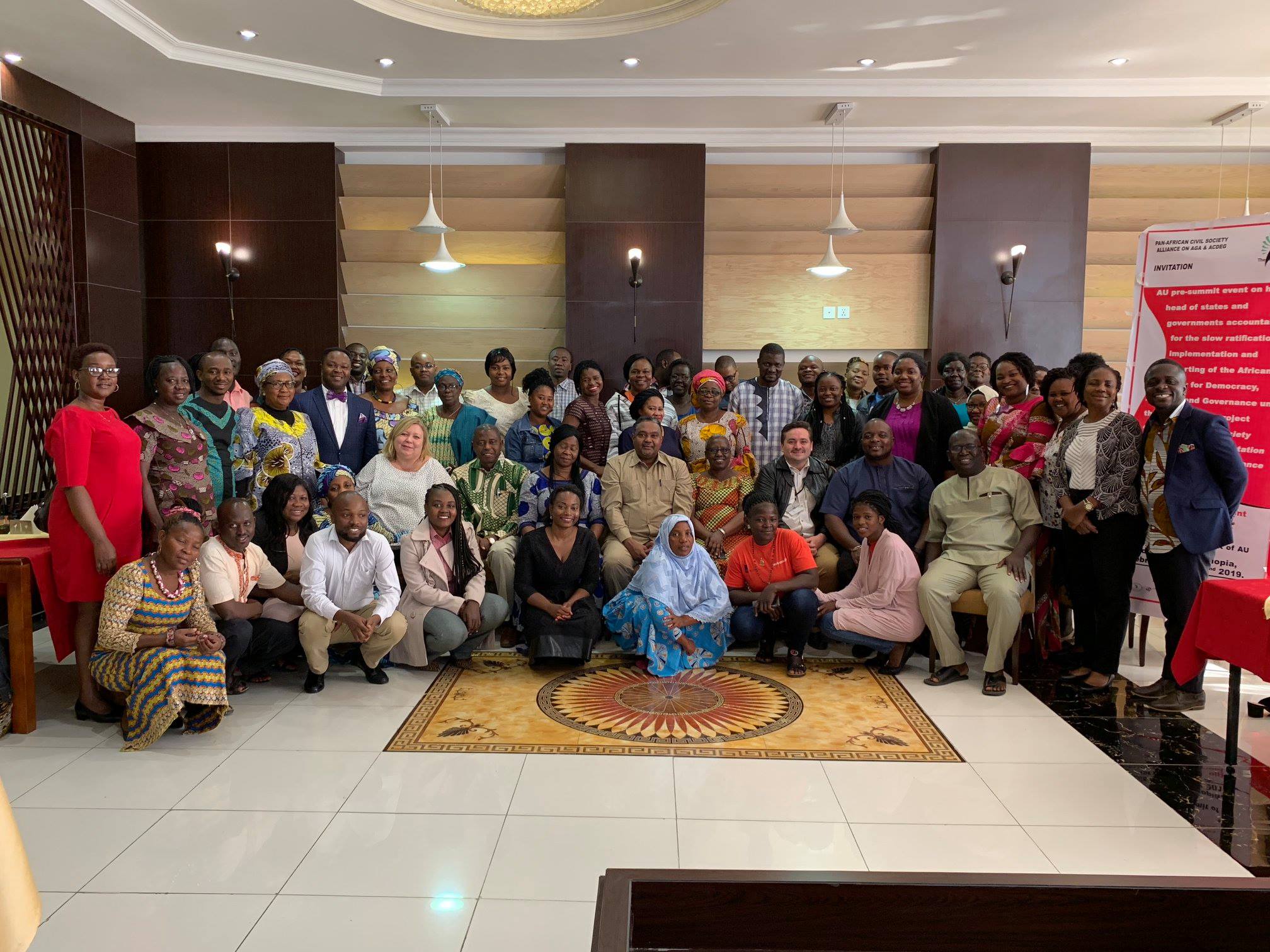The Media Foundation for West Africa (MFWA) will convene a two-day national dialogue from Tuesday, October 28 to Wednesday, October 29, 2025, at the Eastern Premier Hotel in Koforidua, Eastern Region. The event seeks to explore practical and inclusive solutions to the worsening problem of illegal mining, popularly known as galamsey, and the severe environmental and social toll it continues to inflict on Ghana.
Themed “High-Level National Dialogue on Mobilising Citizens’ Consensus on Solutions to the Galamsey Crisis in Ghana,” the forum forms part of MFWA’s broader efforts to foster evidence-based dialogue, accountability, and citizen participation in addressing national challenges that threaten sustainable development and governance.
The discussions will critically examine the scale and impact of the galamsey crisis and assess the effectiveness of state responses so far. A major focus will be on how political polarisation and partisanship have weakened policy coherence and frustrated decisive national action against illegal mining.
For more than three decades of Ghana’s Fourth Republic, illegal mining has remained a stubborn and politically sensitive challenge. Despite repeated campaign promises, successive governments have struggled to tackle the issue comprehensively. The Water Resources Commission estimates that about 60 percent of the country’s water bodies are now polluted by galamsey operations.
The consequences are far-reaching: declining agricultural productivity, contamination of farm produce with heavy metals, and an alarming rise in renal diseases and birth defects linked to polluted water sources. Experts have warned that if the trend continues, Ghana could face a national water crisis by 2030, forcing the country to import water.
At the same time, galamsey remains a primary source of livelihood for an estimated 1.5 million Ghanaians, with about 8 million others depending indirectly on related activities. This economic reality has created a delicate tension between livelihood preservation and environmental sustainability, complicating reform efforts.
Against this backdrop, the MFWA’s national dialogue aims to facilitate consensus-building among citizens and stakeholders to identify realistic, inclusive, and actionable pathways for addressing the crisis.
The forum will bring together environmental and water scientists, mining experts, policymakers, state actors, civil society leaders, traditional leaders, artisanal miners, members of the academia, and media practitioners to deliberate on concrete strategies for reversing the damage and promoting sustainable natural resource governance.





